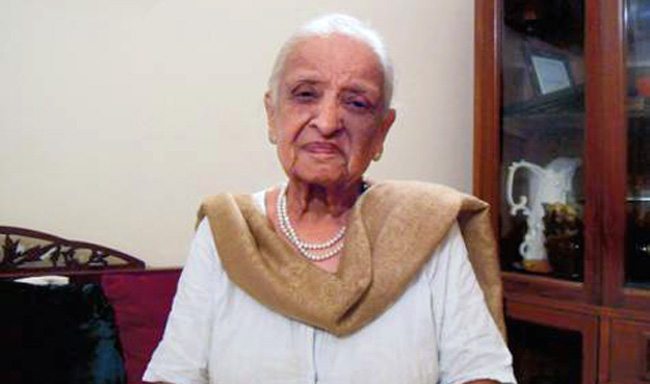ISLAMABAD: Google on Saturday paid a tribute to legendary playwright Fatima Surayya Bajia with one of its iconic doodles on what would have been the late writer’s 88th birthday.
Bajja died in Karachi, in 2016, after a long battle with throat cancer.
Google doodles are special illustrations, graphics and short videos created to honor both living and dead icons from around the world. Previously, Google has displayed doodles of humanitarian Abdul Sattar Edhi and singers Nusrat Fateh Ali Khan and Nur Jehan from Pakistan.

Bajia was born in pre-partition Hyderabad, India before moving to Pakistan with her family after Pakistan’s creation and independence in 1947. (Photo courtesy: social media)
Homeschooled her entire life, her siblings include a number of notable Pakistanis including actor, writer and performer Anwar Maqsood, Zehra Nigah, and the late Zubaida Tariq also known fondly as Zubaida Apa.
She first appeared in a play as an actress in 1966 with Pakistan Television (PTV) which sparked her interest in writing plays.
Recognized as one of Pakistan’s most prominent and successful literary minds, Bajia was the recipient of a number of accolades including Pakistan’s highest civilian honor — the Pride of Performance Award in 1996 and the Hilal-i-Imtiaz in 2012. She also received Japan’s highest civilian award for her body of work.
As a writer she wrote more than 20 plays for PTV including novel adaptations of AR Khatoon’s work: ‘Shama 1974,’ ‘Afshaan,’ and ‘Tasweer,’ Zubaida Khatoon’s ‘Aroosa’ and Mirza Quleech Bain’s Sindhi novel ‘Zeenat.’ Other popular plays included ‘Phool Rahi Sarsoon,’ ‘Arzoo,’ ‘Sassi Punno,’ and ‘Anarkali.’
In addition to her writing achievements, Bajia was also appointed as the adviser to the Chief Minister of Sindh province in Pakistan, and was a member of the committee of the Arts Council of Pakistan.























